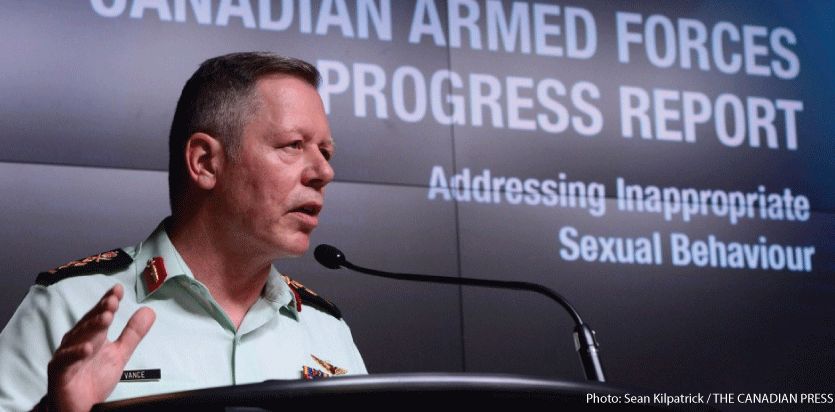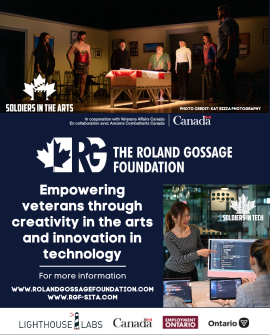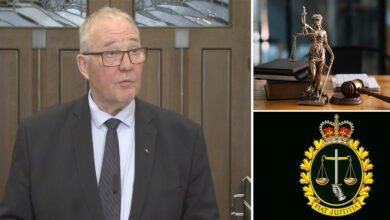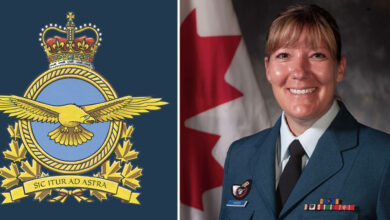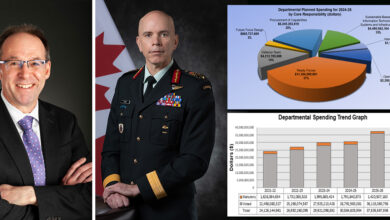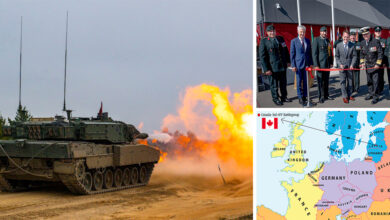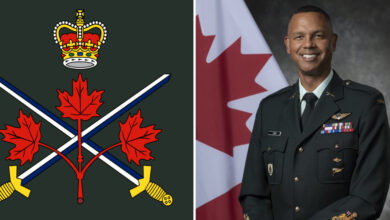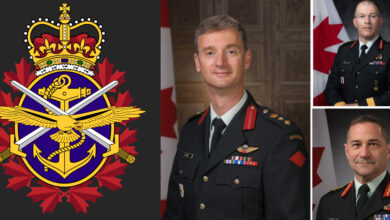Policy
Gen. Jonathan Vance discusses the SMRC and Operation Honour
The Senate committee sat down with General Jonathan Vance on June 11, to discuss the vital role of the Sexual Misconduct Reporting Centre (SMRC) and Operation Honour.
During the last Senate committee meeting on May 28, former Supreme Court of Canada justice Marie Deschamps, expressed concern that the current SMRC in place does not emulate the one she had drafted. Gen. Vance assured the committee during Monday’s meeting, that changes were coming by way of Operation Honour.
“Eliminating all forms of sexual misconduct and harassment has always been and will continue to be the end state of Operation Honour. To get there, we need to promote a culture where all our people feel safe and supported and respect others while at the same time, having the courage to report any case of sexual misconduct,” said Gen. Vance.
He added they are working to make the reporting process simple and efficient. Also, implementing an integrated conflict and complaint management program.
“To modernize how we deal with grievances, harassment complaints and conflict,” said Gen. Vance.
The program was developed in close consultation with the SMRC and the Strategic Response Team for Sexual Misconduct and developed training all Canadian Armed Forces (CAF) members are required to take.
“Even before full implementation, the program has seen 883 complaints, 31 of which were related to Operation Honour. Last year, there were a total of 427 reported incidents of sexual misconduct. 109 of those were investigated and closed, while 318 of those remain under investigation,” said Gen. Vance.
A majority of these cases were referred to civilian police, the Canadian Forces National Investigation Service, or a harassment investigator.
“I think it’s important to highlight that a third party reported nearly half of these cases and in many situations, that person was in a leadership position and first sought advice from the SMRC,” said Gen. Vance.
As a result of these reports, 35 individuals were removed from command, leadership, instruction, or supervisory duties. In 99 other cases, administrative action had been taken, ranging from written warnings, repatriation of deployed personnel, removal from training, and termination of a civilian contract.
Gen. Vance said these numbers are encouraging for a few reasons.
“First, more members feel confident we will address their complaints. Second, leaders are seeking out independent expert advice on how to effectively deal with sexual misconduct. It also means many of our members have less and less tolerance for any form of sexual misconduct, regardless of scale. Moreover, our support for the member is clear and unequivocal,” Gen. Vance continued.
In order to better track and analyze those numbers, the Operation Honour Tracking and Analysis System was introduced. Gen. Vance said it standardizes the reporting process, so they can track incidents, identify trends, and evaluate the effectiveness.
“In addition to better tracking, later this year, Statistics Canada, began a second comprehensive survey of our members. We expect those results to be available in early 2019,” said Gen. Vance. “In the meantime, we have undertaken our own research on groups that were not included in the first Statistics Canada survey, like officer cadets and the Canadian cadet program. Our surveys also show that the vast majority of our members feel leadership takes sexual misconduct seriously and reinforces a culture of mutual respect, honour, and dignity.”
Also, the victim support study gathers input from CAF members who have experienced sexual misconduct, so the chain of command has a better idea of what’s working and what’s not.
“It goes beyond reporting and analysis. We have delivered bystander intervention training to more than 67,000 military and civilian employees. We also know that our newer members are more likely to engage in or be affected by sexual misconduct,” said Gen. Vance.
For that reason, all new CAF recruits and Officers are required to receive Operation Honour training, so it’s clear to everyone should they choose to engage in sexual misconduct, they lose the privilege of wearing Canada’s uniform.
“If we can’t change their behaviour, we can certainly change their employment,” said Gen. Vance.
“Despite our best effort, sexual misconduct still happens. As chief of the defence staff, my main concern is the welfare and morale of my personnel. I need to know that everyone has access to reliable and professional support services,” he continued.
Teams of mental health and medical professionals have been made available to all victims of sexual misconduct. These professionals provide a specialized service to those victims who may be suffering from sexual trauma and abuse.
“Additionally, the Chaplain Sea Branches Sentinel Program is a peer support initiative that trains our people to look for signs of distress and connect struggling members with professional services,” said Gen. Vance.
The victims of sexual misconduct will remain in the CAF, so they will continue to have access to those services throughout their recovery. However, if a victim should not be able to continue their career in the military as a result, they will remain in uniform until all long-term support services are in place for their life outside of the military.
“Allowing victims to see us deliver justice is an essential part of the healing process. That is why our military police and justice system take a victim-centric approach that balances due process with efficiency,” said Gen. Vance.
When a complaint has been made, investigators from the Canadian Forces National Investigation Service will take the lead. Within that branch, the Sexual Offence Response Team has 18 investigators.
“(These investigators) specialize in sexual misconduct investigations. Part of their mandate is to work closely with the investigators and share best practices with other investigators to help minimize investigative delays and ensure procedural correctness,” said Gen. Vance.
Legislative changes are also coming to the National Defence Act and Code of Service Discipline.
“As part of a broader program of military justice reform, these changes will create statutory rights for victims of service offences in four areas,” said Gen. Vance.
• The right to information about the progress of the investigation, prosecution, and sentencing of the person who harmed them.
• The right to protection from intimidation and retaliation, as well as providing the accusers with public anonymity.
• The right to participation to ensure their views about their proceedings are considered throughout and that they are allowed to produce a victim impact statement.
• The right to restitution to ensure courts marshal consider reasonable financial compensation for any losses.
Since the beginning of Operation Honour, the overall conviction rate for sexual misconduct has been 87 per cent.
“This puts our conviction rates higher than any other civilian justice system for both sexual assault and lesser offences, speaking to both the effectiveness and the necessity of our military justice system,” said Gen. Vance. “We have made great progress with Operation Honour. I am proud of the leaders and members who have internalized this problem and worked tirelessly to change our culture, but we still have a lot of work to do. There is no template or existing model that provides a recipe for success.”
In addition to the policies, orders, and training, they are adopting a different approach that relies on active and engaging leadership at all levels.
“Leaders need to drive change by providing vision and a consistent personal example that empowers and inspires subordinates to set the conditions for the elimination of sexual misconduct,” said Gen. Vance.
Gen. Vance added that his next steps are to formalize arrangements and policies to increase the rigor of their planning and analysis.
“This includes implementing a formal culture change model and developing a comprehensive measurement system. All of which will implicate the SMRC more than it is now,” said Gen. Vance.
He added that they also need to share and integrate best practices with public service leaders, better meeting the need of civilian defence team members.
“Our operational effectiveness depends on our ability to attract the best and brightest from all walks of life and to employ them effectively,” Gen. Vance continued. “I want Canadians to know that a career in the military is one of life’s most rewarding experiences and we are doing everything in our power to ensure everyone, courageous enough to join us, is only to be concerned about one thing, and that is service to Canada.”


